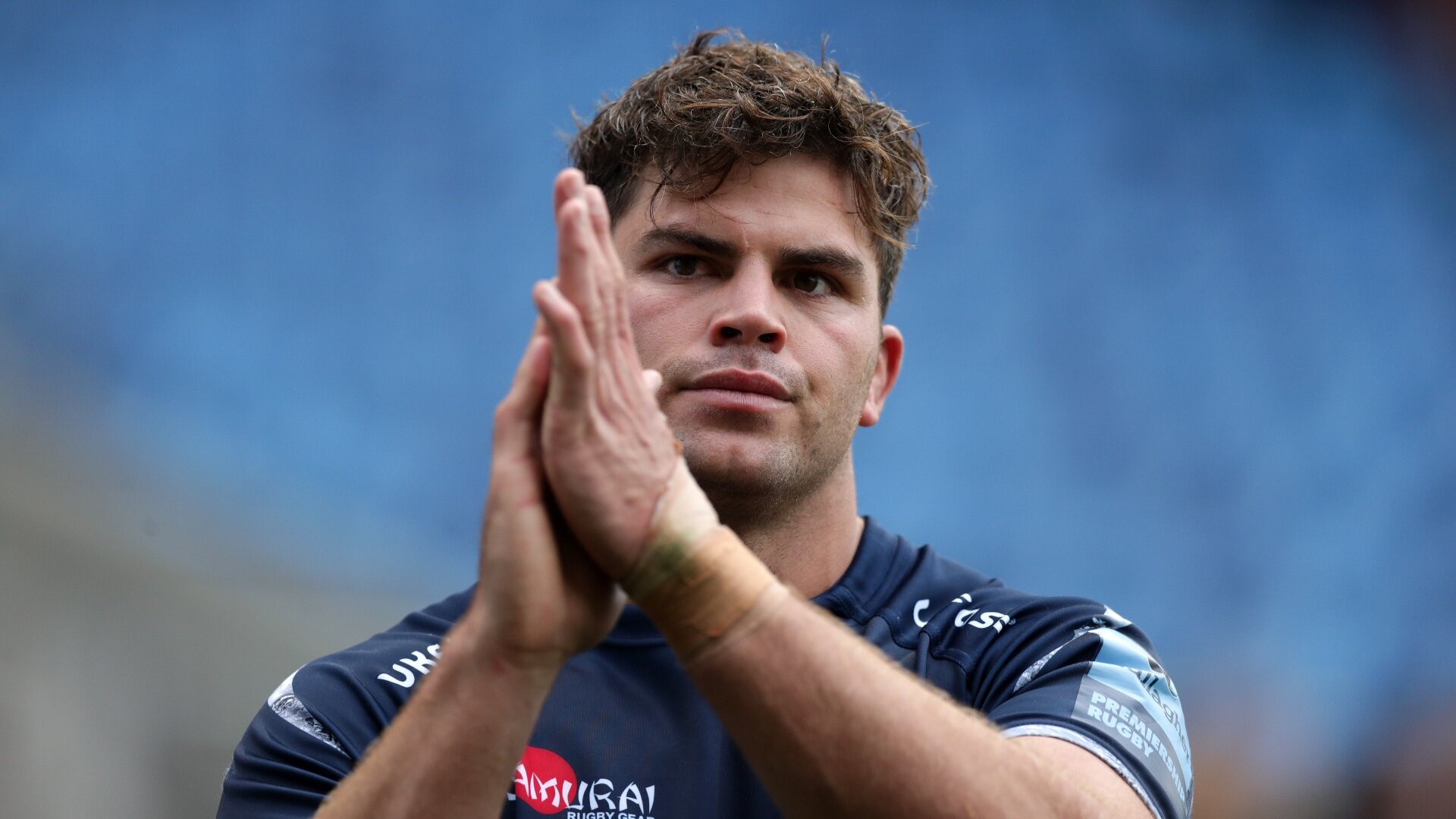How over 300 tackles a season left Jono Ross' shoulder 'hanging on'

Jono Ross was on course for a third successive season of making more than 300 tackles in the Gallagher Premiership before the Covid-19 pandemic brought an abrupt halt to the mayhem he was creating.
The Sale Sharks back row had continued to maintain his reputation as the iron man of the sport in the English league despite requiring surgery on his left shoulder at the end of last season.
Rather than douse his tackling fires, Ross merely headed to the gym to ensure he was fully fit for the start of a campaign that is currently suspended just 13 rounds of matches into the 22-game schedule.
In his first season at Sale after moving from Stade Francais in 2017, the Johannesburg-born 29-year-old put in 336 tackles to top the Premiership tackle count.
He then followed this up with another 331 tackles last season to repeat his position as the best in the business – and he currently leads the table again on 201 despite his operation.
His defensive prowess is not just all about physicality either, Ross telling RugbyPass that being mentally on his game is just as important when constantly halting ball-carrying opponents.
“In rugby – especially in my position – it is a difficult one to make sure you are strong every week, push through things that are hurting and just get on with it,” he said.
“There is pride in the number of tackles and it is an indication of work rate but ultimately I’m trying to do whatever is best for the team and somehow I seem to make a lot of tackles.
“It’s important to be effective in those tackles, dominant and ensuring they are good quality tackles while also improving other parts of my game.
“I have had some good coaching along the way, but a lot of it has to do with mentality and being willing to put your body where it hurts.
“I’m not trying to make it sound worse that it is and lots of guys do it, but it does come down to that mentality, although technique is also important because there are concerns about head knocks and injuries.
“Personally, I prefer to tackle a bit higher because I feel you can dominate an attacker if you tackle him like that. I also think it is safer.
'It is inevitable that if we can restart, we are going to be playing through the summer'https://t.co/cmUmlOd2mq
— RugbyPass (@RugbyPass) March 23, 2020
“There is a lot of talk about chop tackling but there are some hard things (down there) like knees and hips. It is an interesting debate but I feel safer making tackles through the ball and the chest area.
“I had a coach John McFarland (ex-Bulls and Springboks) and he was big on that. It was something I developed to win the battle when someone is running at you.”
Ross has led a Sale squad bolstered by fellow South Africans up to second place in the Premiership and they also have a postponed Premiership Rugby Cup final against Harlequins to fit in if the season in England is given the green light to resume.
For now, a self-isolation training regime has been designed to keep Ross fit and his shoulders are glad of the mid-season break. “Obviously, as the season goes on you feel it a bit more worn down and last year I got to point with my shoulder where I was hanging on towards the end.
UNSCRIPTED ? | Our feature length interview series starts with Captain @Jono__Ross! ?
We cover everything from growing up in South Africa, living in Paris, international ambitions & more!
Watch the full interview on YouTube!
?https://t.co/jkwBKIBPQK#SharkTime | @UKFast
— Sale Sharks ? (@SaleSharksRugby) October 23, 2019
“Coming into this season I had a good period in the gym and ensured that my body was really strong knowing what I was going to go through while also being mentally strong as well.”
With the tackle area a real focus for referees and those trying to make the game as safe as possible, Ross has urged those examining this key area to remember the pace at which the sport is played. “People don’t understand how quickly things happen on the pitch,” he explained. “You have to set yourself in the tackle and dominate the opposition.
“But it can change in a split second with you intending to hit at the right height but the guy can drop and you hit him in the head. You need an understanding of the speed at what things happen and while you want to be safe, the sport is dangerous.”
WATCH: Premiership Rugby considering midweek matches in order to finish the season




























































































